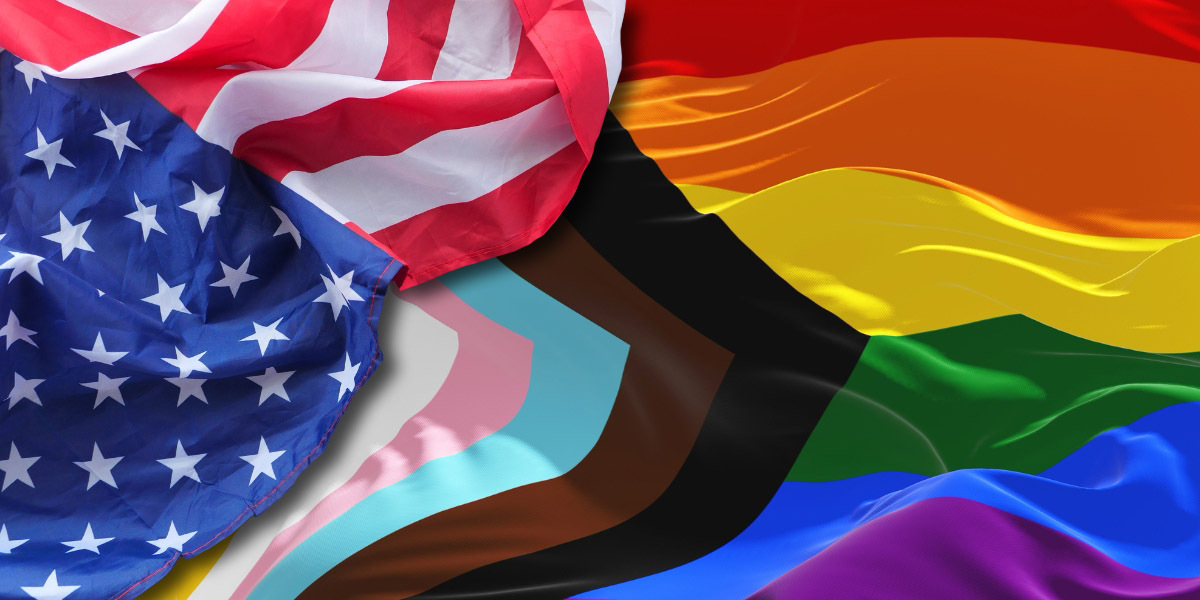As anti-trans bills, drag bans, and general anti-queer fervor sweep through the American legislature, the Supreme Court is slated to decide on a potentially monumental case related to LGBTQ+ rights and marriage equality. 303 Creative v. Elenis came to the Supreme Court from the 10th Circuit Appellate Court and was argued before the bench in the October 2022-2023 term. With the court expected to issue its ruling in June 2023, here is what you need to know about the case.
Getting to know the case basics
In essence, 303 Creative is similar to 2018’s Masterpiece Cakeshop case; in both instances, a Colorado purveyor of services doesn’t want to serve same-sex couples and tries to leverage the First Amendment as legal grounds for discrimination. The court ruled in favor of the anti-gay baker in its Masterpiece decision, setting a dangerous precedent.
According to the American Civil Liberties Union (ACLU), which is actively working to protect LGBTQ+ rights in this case, 303 Creative “concerns whether applying a public accommodation law to compel a business that chooses to serve the public to provide wedding website design services without discriminating against a same-sex couple violates the free speech clause of the First Amendment.”
Lorie Smith, a Colorado-based graphic designer and owner of the web design firm 303 Creative, refuses to create wedding websites for LGBTQ+ couples, citing religious beliefs. Notably, no LGBTQ+ couples have asked her to design their wedding website yet–it’s an entirely hypothetical issue. In an alarming display of proactivity, Smith is seeking exemption from a Colorado law that prohibits discrimination in public accommodations on the basis of sexual orientation and gender identity. According to SCOTUSblog, Smith is arguing that being forced to comply with this law would infringe on her First Amendment rights by compelling her to use her art to convey a “message” she finds objectionable.
Calling this what it is: an ideological campaign
Smith is represented by the Alliance Defending Freedom (ADF), a notoriously conservative organization that the Southern Poverty Law Center has labeled an anti-LGBTQ hate group. The ADF disputes this label, but its actions and political associations belie a proclivity for financially backing anti-LGBTQ+ causes. For decades, the ADF has supported legal efforts to let businesses deny goods and services to LGBTQ+ people, among other homophobic policies.
Given the fact that Smith would, without this organizational support, be unlikely to have brought this complaint all the way from her state judiciary to the highest court in the land, it is clear that the ADF is using 303 Creative to politically posture in favor of federally sanctioned anti-gay discrimination. In fact, Smith’s company doesn’t currently offer wedding website designs at all. She has not yet turned away any same-sex couples seeking this service, and the state of Colorado is not forcing her to sell a service or message going against her ideology. Unlike most Supreme Court cases that concern nondiscrimination protections, there are no actual aggrieved individuals in this case. Rather, ADF lawyers preemptively filed a lawsuit against the state of Colorado on Smith’s behalf, in order to directly challenge and undermine existing anti-discrimination laws.
What the experts say
“There’s a range of all sorts of reasons that a business can refuse to serve a customer, but not based on discriminatory reasons that are prohibited by the statute,” Jennifer Pizer, chief legal officer for the LGBTQ+ civil rights firm Lambda Legal, tells Teen Vogue. Smith is “engaged in conduct very well calculated to communicate to the entire country that she opposes marriage for same-sex couples, but if she wants to sell a particular service that she has chosen to sell, then she should be required to do that consistently to the state law.”
If the Supreme Court rules in Smith’s favor, 303 Creative could usher in a slew of anti-LGBTQ+ legislative loopholes and back-stepping across the nation. And, given the current conservative majority and Justices Thomas and Alito’s repeated desires to see marriage equality overturned, we have good reason to be concerned that a ruling for 303 Creative could very well be the outcome.
“It is a plaintiff in search of a problem in order to create a constitutional rule, which would, I think, at the end of the day, potentially subjugate same-sex couples who are in the public square,” Anthony Michael Kreis, an assistant professor of law at Georgia State University’s College of Law, tells Teen Vogue. “Not only has this case been manufactured, which is unusual in terms of the way litigation develops, but it has been done so for the express purpose to harm same-sex couples, and that has been the ADF’s mission for many, many years now.” ![]()
To support the ACLU’s ongoing efforts to protect LGBTQ+ rights in this and other cases, donate or find volunteer opportunities through your local branch.
Stay updated on more marriage equality news by joining our mailing list and following us on Instagram and TikTok.
Marley Madding
1 Comment
Leave a Reply
You must be logged in to post a comment.

































It’s not called No Gays Allowed Creative 303 and has no written official terms or conditions barring gays. As a result, it should lose the case. Furthermore, the wedding cake lawsuit should be re-opened and re-examined on the basis of perjury against a cake shop lying about possessing a business plan barring gays.